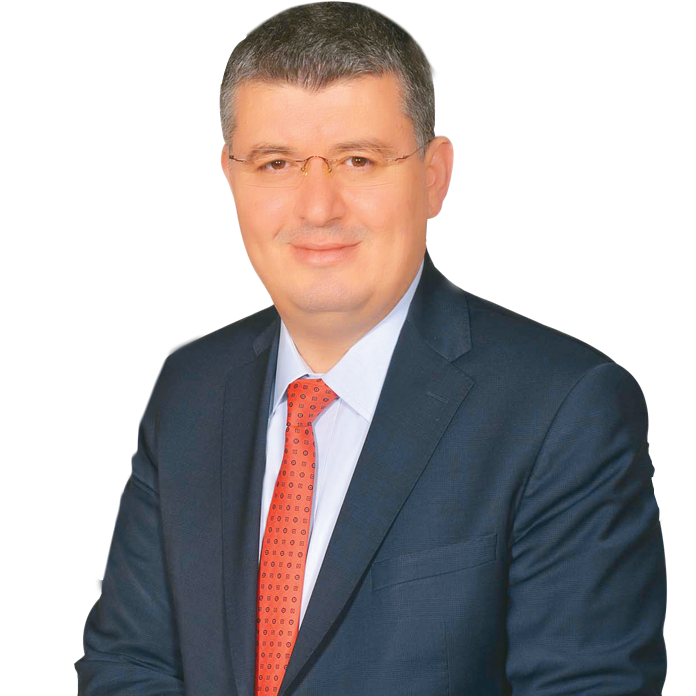Foreign media is publishing interesting news regarding the background of the U.S., or rather U.S. President Donald Trump's decision to withdraw from Syria. One of these is the AP's news, with information it obtained from sources in Washington and Ankara.
How Trump made that historic decision, knowing what happened behind the curtains is significant in terms of understanding the atmosphere, the power equilibrium in Washington, and well understanding the role Turkey, or rather President Recep Tayyip Erdoğan played when that decision was being made.
Therefore, let us start to discuss what happened in the U.S. during that one week.
-A one-sentence statement from President Erdoğan lights the signal flare. Erdoğan saying, "We completed our preparations, we are launching the operation east of the Euphrates River in a few days," made Washington take alarm.
-Secretary of State Mike Pompeo called his Turkish counterpart Mevlüt Çavuşoğlu on Dec. 13 to "sound him out" and understand Erdoğan's intention, but he is unable to get what he wants.
-Upon this, a decision is made for Trump to call Erdoğan. Meanwhile, U.S. Secretary of Defense James Mattis, who had not yet resigned from his post, Pompeo, and the White House's National Security team, prepared written notes for Trump to use when speaking to Erdoğan to convince him to abandon the operation.
-During the phone call on Dec. 14, Erdoğan ask a question that sends all preparations down the drain: "Mr. President, Daesh was the only reason for your presence in Syria. Why are you still there despite Daesh being 99 percent defeated?"
-This is the breaking moment. After the question was asked, instead of answering Erdoğan, Trump first asks his National Security Adviser John Bolton, then others who are present, such as Pompeo, Mattis, McGurk, and James Jeffrey who are in efforts for Syria, "Do you confirm what Erdoğan said?"
-Once the real situation is confirmed, Trump announces his historic decision: We are withdrawing from Syria.
-Of course, the resistance team does not give up here. Pompeo, Bolton and Mattis strive for four days to get Trump to give up his decision through finding a middle way, postponing the withdrawal decision, leaving Turkey a tiny parcel of land east of the Euphrates. All of the options presented to the president through his White House chief of staff are rejected - Trump does not step back from his decision.
The resignation reports that followed are known by all. Trump's decision has an impact on the team whose names we mentioned above that resonate with the words of CENTCOM Commander Joseph Votel, who is on the brain team of the physical support given to the Kurdistan Workers' Party (PKK)-affiliated People's Protection Units (YPG) in Syria, "I feel like I received a blow to my stomach."
So, how should we interpret all this? Are we talking about a process that can suddenly change direction according to the wind? Or are we witnessing tremors that are formed with the movement/breaking of a few certain deeper fault lines?
Looking at the big picture, these developments indicate a context that is too serious to be explained by Trump's sudden reflexes. For example, the Justice and Development (AK) Party's vice president in charge of Foreign Affairs, Cevdet Yılmaz, explains the matter through the Soviet Union example:
"The Soviets collapsed not with a war, but because it was unable to carry the load it was burdened with. Now, the U.S. is face-to-face with a load it has realized that it is having trouble lifting [in terms of being a global gendarme]."
When we take into consideration that this stance is among the dynamics that helped Trump win the elections, which found sense in his statement, "We spend $7 trillion on the Middle East for nothing," we can get an idea of the depth of the "load that has become difficult to carry" and its response in the U.S. community. And if this process progresses on this accord, it gives rise to the fact that new opportunities and new risks will arise in terms of Turkey, and that a new period open to surprises is starting.
We asked in the title, "What is Turkey going to do?" It is understood from the statements that President Erdoğan is going to postpone the operation, and that we are going to wait for the U.S. to complete its process of withdrawing troops from Syria.
What is going to happen after that?
In the first place we can say this much:
The separationist and imperialism-controlled "Rojava project," which is carried out through the PKK/YPG - which was left "naked" when the U.S. shield over it was deactivated - and which produces a fundamental "perpetuity problem" for Turkey, going down the drain has become a serious possibility. Looking at the reports published, the statements made, the world agrees that Turkey and Erdoğan are the winners of these latest developments.
It is enough to look at Israeli President Benjamin Netanyahu's frowning face to understand this.
It seems a new ground has formed in front of Ankara, where it can use instruments that will deactivate the PKK/YPG with military methods on the ground, or with its strengthened position at the table. In the case this new situation is progressed with smart policies and ground implementations, it can lead to never-before-seen benefits for Turkey.




















